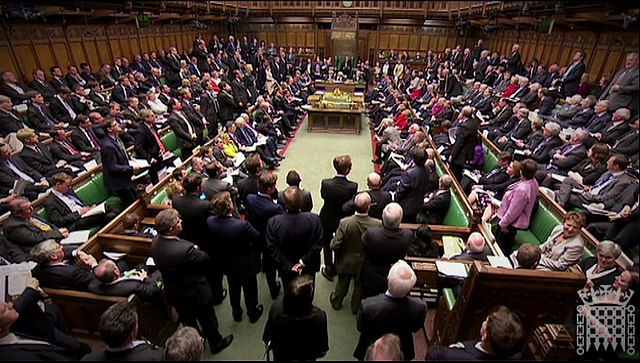By: Simon Brooke :: 12 August 2023
This is not one of my finest essays; it's a response to an email on a local climate group which objected to Extinction Rebellion's proposal for a citizen's assembly on climate policy saying, in part:
I find the thought of randomly selecting people from the general population and giving them what amounts to legislative power quite frightening. Given the level to which ßthe UK is dumbed down, the poor standards of education, general ignorance of science etc etc, I can't see how the majority of the members of a Citizens' Assembly would be in any way competent to be given the powers that XR proposes to give them.
Challenged on this (not by me), the original poster went on to quote Churchill:
'Indeed it has been said that democracy is the worst form of Government except for all those other forms that have been tried from time to time.…’
At this point, I was provoked to reply. Churchill was the grandson of the 7th Duke of Marlborough. He wouldn't recognise democracy if one of his servants scraped it off the heel of his boot.
As I say, this is not a fine essay, but I think it's worth capturing because it's something I will probably work up further later. Here is my reply:

Democracy may possibly be a good system of governance — I don't believe representative democracy can be, for reasons I shall give below — but we don't know, because at least in the English-speaking world, it's never been tried.
No UK government since 1945 has been elected with a majority of the votes cast (I was mistaken on this; the actual date is 1935, when the Conservatives won 53.3%). The First Past the Post voting system prevents the emergence of a broad range of parties, meaning the choices voters make lack nuance. More than half of all UK Members of Parliament are in the House of Lords, and aren't elected at all.
Having said that, those people who are selected to stand for parliament — in the UK in particular but also in western democracies more generally — are in themselves a very odd group. They're selected mainly for party loyalty, so they're overwhelmingly people who put tribalism over conscience. Increasingly, they're mainly career politicians, who go from a PPE place at an elite university, to being an MP's assistant, to being a candidate. The minority who aren't are usually either journalists or lawyers.
There are very few scientists. There are very few engineers. There are very few medical doctors. There are few with higher degrees of any sort. There are very few with experience of industry, either on the shop floor or in management. There are very few scholars. There are very few single parents. There are very few with disabilities.
Consequently our elected representatives have an extremely limited range of life experience, and an extremely limited range of expertise.
In other words, the idea we have a 'representative democracy' is a joke. They wear suits, goddamnit. How many normal people wear suits?
Once in parliament, in order to progress, MPs have to do two things: they have to slavishly follow the party whip; and they have to develop skill in the arcane and frankly puerile procedures of Westminster. So from an already narrow collection of people, we select for leadership the least principled and the most trivial.
And you wonder the world is in a mess?
By contrast, a citizens' assembly is a representative group of ordinary people. Ordinary people are mostly well intentioned, mostly sensible, mostly generous. If they're given access to good information and relevant expertise, they will make good decisions — much braver decisions than politicians would dare make. We've seen that particularly in Ireland.
Citizens' assembly members are not playing games to gain attention. They're not strategising to win the next election. They're not following a party whip. They're not driven by ambition. They cannot be less trustworthy than MPs.
Our current systems of governance are broken. We have extremely limited time to make dramatic and fundamental reforms if human life is to survive this century in any recognisable form. It is not plausible that either Sunak or Starmer — or, indeed, anyone else who might emerge in the Westminster system — can turn the situation around in the time we have left.
We have to try something different. Citizens' assemblies have a good track record. We should try them.

